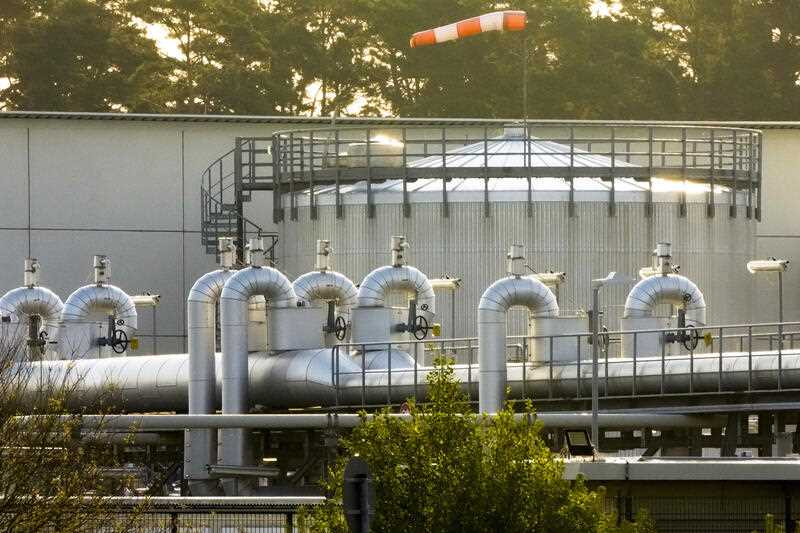Russia has halted gas supplies via Europe’s key supply route, intensifying an economic battle between Moscow and Brussels and raising the prospects of recession and energy rationing in some of the region’s richest countries.
European governments fear Moscow could extend the outage in retaliation for Western sanctions imposed after it invaded Ukraine.
They have accused Russia of using energy supplies as a “weapon of war”.
Moscow denies doing this and has cited technical reasons for supply cuts.
Russia’s state energy giant Gazprom said Nord Stream 1, the biggest pipeline carrying gas to its top customer Germany, will be out for maintenance until September 3.
The pipeline’s operator confirmed no gas was flowing on Wednesday morning.
The president of the German network regulator said Germany was now better prepared for the outages as its gas storage was nearly 85 per cent filled and it was securing supplies from other sources.
“We can take gas from the storage in the winter, we are saving gas (and need to keep doing so!), the LNG terminals are coming, and thanks to Belgium, the Netherlands, Norway (and soon France), gas is flowing,” Klaus Mueller said on Twitter.
Further restrictions to European gas supplies would deepen an energy crunch that has already triggered a 400 per cent surge in wholesale gas prices since last August, squeezing consumers and businesses and forcing governments to spend billions to ease the burden.
In Germany, inflation soared to its highest level in almost 50 years in August and consumer sentiment is projected to hit a record low for the third month in a row next month as households brace for higher energy bills.
Moscow, which slashed supply via the pipeline to 40 per cent of capacity in June and to 20 per cent in July, blames maintenance issues and sanctions it says prevent the return and installation of equipment.
Gazprom said the latest shutdown was needed to perform maintenance on the pipeline’s only remaining compressor.
Yet Russia has also stopped supplying Bulgaria, Denmark, Finland, the Netherlands and Poland completely, and reduced flows via other pipelines since launching what Moscow calls its “special military operation” in Ukraine.
On Tuesday, Gazprom also said it would suspend gas deliveries to its French contractor because of a payments dispute, which France’s energy minister called a mere excuse, but added that the country had anticipated the loss of supply.
German Economy Minister Robert Habeck, on a mission to replace Russian gas imports by mid-2024, earlier this month said Nord Stream 1 was “fully operational” and there were no technical issues as claimed by Moscow.
Europe’s largest economy is making better progress than expected in filling its gas storage facilities, but it is not yet enough to get the country through winter, he said.
The reduced flows via Nord Stream have complicated efforts across Europe to fill up vital gas storage facilities, a key strategic goal to make it through the winter months, when governments fear Russia may halt flows altogether.
“It is something of a miracle that gas filling levels in Germany have continued to rise nonetheless,” Commerzbank analysts wrote, noting the country has so far managed to buy enough at higher prices elsewhere.
For the European Union as a whole, the current storage level is 80.17 per cent, already ahead of the 80 per cent target set for October 1, when the continent’s heating season starts.
By Christoph Steitz and Nina Chestney in FRANKFURT/LONDON
Get the latest news, sport, entertainment, lifestyle, competitions and more delivered straight to your inbox with the Canberra Daily Daily Newsletter. Sign up here.



